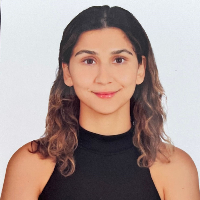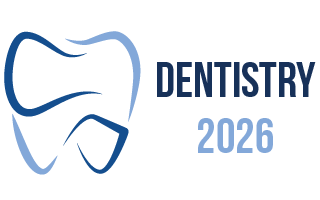3rd European Conference on
Dentistry and Oral Health
May 20-21, 2026 | Barcelona, Spain

Address: Avinguda Del Maresme 78 Ronda De Dalt Exit 15, 08940 Comellà de Llobregat, Barcelona, Spain
Dentistry 2026

Suleyman Demirel University, Turkey
Abstract:
Endodontic treatment aims to remove necrotic or infected pulp tissue, disinfect the root canal system, and achieve three-dimensional hermetic obturation. Periapical lesions due to pulp necrosis typically arise from chronic inflammation and appear as radiolucencies.Proper biomechanical preparation, irrigation, and obturation eliminate infection, promoting periapical healing and lesion regression.
In this case report, a 16-year-old healthy female patient presented to our clinic with facial swelling associated with tooth #47. Extraoral examination revealed swelling and an extraoral sinus tract.Intraoral examination demonstrated negative responses to vitality, percussion, and palpation tests, and no mobility was detected. Periapical radiography showed the presence of a periapical abscess. At the first appointment, after the working lenght determination, mechanical enstrumentation was performed using rubber dam isolation.The root canal was irrigated with 2.5%NaOCl,17% EDTA and saline. Calcium hydroxide-based intracanal medicament (Calciplus,USA) was placed, and systemic antibiotics were prescribed.At the second appointment, two weeks later, the intracanal medicament was removed, and final irrigation was activated using Eddy (VDW,Germany). The root canals were obturated with gutta-percha using the cold lateral condensation technique and a epoxy resin base root canal sealer (Endoplus,Germany).The tooth was restored with composite resin (Dynamic Plus,Germany).During follow-up visits, complete resolution of the extraoral sinus tract,intraoral abscess, and furcation area was observed, along with a significant reduction in the size of the periapical lesion on radiographic evaluation.
This case highlights the importance of accurate diagnosis, appropriate treatment protocol, and regular follow-up in achieving successful outcomes in endodontic therapy
Biography:
I graduated from Akdeniz University's Department of Dentistry in 2022. I have been working as a research assistant in the Department of Pediatric Dentistry at Suleyman Demirel University for two years. I presented an oral presentation at the 29th Congress of the Balkan Stomatological Society on the subject of MANAGEMENT OF AN OPEN APEX IN AN UPPER INCISOR USING MTA: A CASE REPORT
